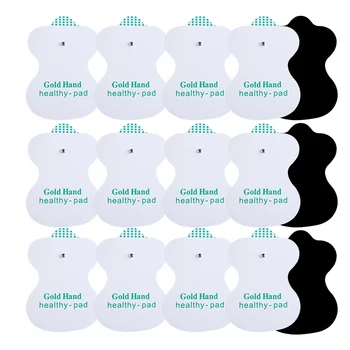Exploring Teaching Opportunities in India

Exploring Teaching Opportunities in India: A Comprehensive Guide
India, with its diverse educational landscape and growing emphasis on quality education, offers a myriad of teaching opportunities for both domestic and international educators.
Whether you are a seasoned teacher from abroad looking to make a difference or a local professional seeking new avenues, understanding the employment opportunities, application procedures, and qualification requirements is crucial.
This blog post aims to provide an extensive overview of teaching opportunities in India, including modalities, qualification requirements, and the application process.
1. Types of Teaching Positions in India
1.1. Government Schools
Government schools in India are managed by state or central government bodies. These schools often offer job security, a structured salary scale, and additional benefits like pensions and medical allowances.
– Primary and Secondary School Teachers: These positions generally require a Bachelor’s degree in Education (B.Ed) and a qualifying score on the Teacher Eligibility Test (TET).
1.2. Private Schools
Private schools in India range from budget schools to high-end international institutions. They offer competitive salaries, modern teaching resources, and better facilities.
– Subject-Specific Teachers: Positions are available across various subjects, and the requirements often include a relevant degree and teaching experience.
– International Schools: These schools follow international curricula like IB, IGCSE, or American, requiring specific qualifications and experience related to these programs.
1.3. Colleges and Universities
Teaching positions at the tertiary level are available in various disciplines. These positions usually require advanced degrees (Master’s or Ph.D.) and significant research or teaching experience.
– Assistant Professors, Associate Professors, and Professors: Positions typically require postgraduate degrees and relevant experience in academia.
1.4. Language Schools
With India’s increasing global connectivity, language schools that teach English and other foreign languages are on the rise.
– English Language Teachers: Positions require TEFL/TESOL certification, and sometimes a relevant degree.
1.5. Coaching Institutes
Coaching centers prepare students for competitive exams like IIT-JEE, NEET, and civil services. They seek specialized teachers with expertise in specific subjects.
– Specialized Trainers: A strong background in the subject area and teaching experience are usually required.
2. Qualifications and Requirements
2.1. For Domestic Teachers
– Primary and Secondary School Teachers: B.Ed degree, TET qualification.
– Higher Education: Postgraduate degrees (Master’s or Ph.D.), NET (National Eligibility Test) for university-level teaching.
– International Schools: Relevant international teaching qualifications and experience.
2.2. For International Teachers
– Educational Qualifications: A relevant degree and, often, a TEFL/TESOL certification for teaching English.
– Experience: Prior teaching experience is preferred.
– Visa Requirements: A valid work visa is required. Employers usually assist with this process.
3. Application Procedure
3.1. Domestic Teachers
1. Job Listings: Check government job portals, school websites, and educational job boards.
2. Prepare Documents: Update your CV, gather relevant certificates, and prepare a cover letter.
3. Apply: Submit applications through the school’s official website or job portals.
4. Exams and Interviews: Prepare for written tests and interviews as required.
3.2. International Teachers
1. Research Opportunities: Use international job boards, recruitment agencies, and school websites.
2. Prepare Documentation: Ensure your CV, cover letter, and certifications are in order. Some schools may require notarized documents or verification.
3. Application: Apply via the school’s career portal or recruitment agencies.
4. Visa Process: Once offered a position, follow the employer’s instructions for obtaining a work visa.
4. Cost Considerations
4.1. Domestic Teachers
– TET Fees: Typically between INR 500 to INR 1,000.
– B.Ed Program: Varies by institution, typically INR 20,000 to INR 100,000 per year.
4.2. International Teachers
– TEFL/TESOL Certification: Costs between $200 to $1,500 depending on the course provider.
– Visa Fees: Varies by country, generally around $50 to $200.
5. Useful Websites and Resources
5.1. Job Portals
– Naukri.com: Comprehensive job listings including teaching positions.
– TimesJobs: Provides a wide range of teaching and academic job opportunities.
– LinkedIn: Useful for networking and job searches.
5.2. Government Resources
– National Testing Agency (NTA): For updates on TET and NET exams.
– Sarkari Result: Provides information on government job vacancies.
5.3. International Job Boards
– TeachAway: Offers teaching jobs in various countries, including India.
– GoAbroad: Provides information on teaching opportunities abroad.
6. Conclusion
Teaching in India offers diverse opportunities for both local and international educators. From primary schools to universities and coaching institutes, the demand for qualified teachers is robust.
Understanding the types of positions available, the qualifications required, and the application process can help streamline your job search and facilitate a successful teaching career in India.
Whether you are aiming to join a government institution or a private school, careful preparation and research will enhance your chances of securing a rewarding teaching position.
By staying informed about the latest developments and leveraging the right resources, you can make a significant impact on the educational landscape of one of the world’s most dynamic countries.
Shop With US
Further reading
Teaching Opportunities in China
Teaching Employment Opportunities in America
How to Successfully Migrate for Work in Canada
Shop With US
Nursing Opportunities in the Middle East



































Leave a comment